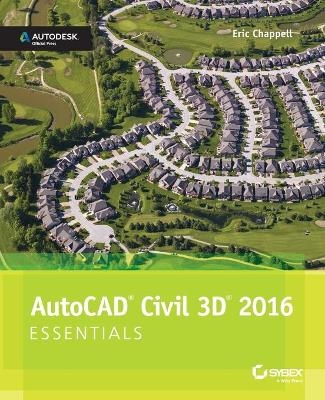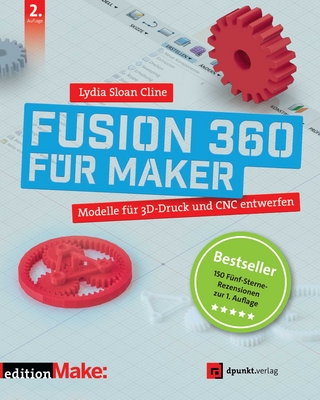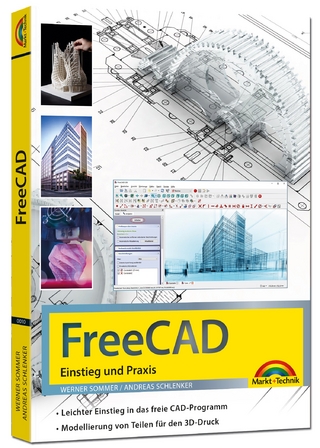
AutoCAD Civil 3D 2016 Essentials
Sybex Inc.,U.S. (Verlag)
978-1-119-05959-2 (ISBN)
Start designing today with this hands-on beginner's guide to AutoCAD Civil 3D 2016 AutoCAD Civil 3D 2016 Essentials gets you quickly up to speed with the features and functions of this industry-leading civil engineering software. This full-color guide features approachable, hands-on exercises and additional task-based tutorials that help you quickly become productive as you master the fundamental aspects of AutoCAD Civil 3D design. Each chapter opens with a quick discussion of concepts and learning goals, and then briskly moves into tutorial mode with screen shots that illustrate each step of the process. The emphasis is on skills rather than tools, and the clear delineation between "why" and "how" makes this guide ideal for quick reference. The companion website provides starting and ending files for each exercise, so you can jump in at any point and compare your work with the pros. Centered around the real-world task of designing a residential subdivision, these exercises get you up to speed with the program's functionality, while also providing the only Autodesk-endorsed preparation for the AutoCAD Civil 3D certification exam.
Master the AutoCAD Civil 3D 2016 interface and basic tasks
Model terrain using imported field survey data
Analyze boundaries, pipe networks, surfaces, and terrain
Estimate quantities and create construction documentation
If you're ready to acquire this must-have skillset, AutoCAD Civil 3D 2016 Essentials will get you up to speed quickly and easily.
About the Author Eric Chappell, a 20-year veteran in the world of civil engineering software, is a recognized expert on Autodesk® AutoCAD Civil 3D®. He has written training materials and conducted training for end users, trainers, and Autodesk employees around the globe, and has worked with Autodesk in authoring and developing two Autodesk certification exams. Eric is a highly rated instructor at Autodesk University, where he has taught for over 10 years.
Introduction xii
Chapter 1 Navigating the User Interface 1
Getting to Know the Civil 3D User Interface 2
Working with the Application Menu 3
Working with the Ribbon 5
Working with the Toolspace 8
Using the Drawing Area 11
Using the Command Line 12
Using Panorama 12
Using the Transparent Commands Toolbar 13
Using the Inquiry Tool 14
Chapter 2 Leveraging a Dynamic Environment 17
Connecting Objects and Styles 18
Connecting Labels and Label Styles 23
Connecting Objects to Objects 27
Connecting Objects to Labels 29
Appreciating the Richness of the 3-D Model 31
Sharing Data in a Dynamic Environment 33
Chapter 3 Establishing Existing Conditions Using Survey Data 37
What Is Survey Data? 38
Creating a Survey Database 39
Importing Survey Data 41
Automating Field-to-Finish 45
Editing Survey Points 57
Editing Survey Figures 59
Creating Additional Points 61
Chapter 4 Modeling the Existing Terrain Using Surfaces 65
Understanding Surfaces 66
Creating a Surface from Survey Data 67
Using Breaklines to Improve Surface Accuracy 71
Editing Surfaces 77
Displaying and Analyzing Surfaces 82
Annotating Surfaces 87
Chapter 5 Designing in 2-D Using Alignments 91
Understanding Alignments 92
Creating Alignments from Objects 92
Creating Alignments Using the Alignment Creation Tools 95
Editing Alignments 99
Applying Design Criteria Files and Check Sets 107
Chapter 6 Displaying and Annotating Alignments 113
Using Alignment Styles 114
Applying Alignment Labels and Label Sets 116
Creating Station/Offset Labels 121
Creating Segment Labels 123
Using Tag Labels and Tables 126
Chapter 7 Designing Vertically Using Profiles 131
Creating Surface Profiles 132
Displaying Profiles in Profile Views 133
Creating Design Profiles 134
Editing Profiles 136
Using Design Check Sets and Criteria Files 144
Chapter 8 Displaying and Annotating Profiles 149
Applying Profile Styles 150
Applying Profile View Styles 152
Applying Profile View Bands 154
Applying Profile Labels 157
Creating and Applying Profile Label Sets 159
Creating Profile View Labels 160
Projecting Objects to Profile Views 164
Chapter 9 Designing in 3D Using Corridors 169
Understanding Corridors 170
Creating an Assembly 173
Creating a Corridor 175
Applying Corridor Targets 176
Creating Corridor Surfaces 185
Chapter 10 Creating Cross Sections of the Design 191
Using the Section Editor 192
Creating Sample Lines 195
Creating Section Views 198
Sampling More Sources 202
Chapter 11 Displaying and Annotating Sections 207
Applying Section Styles 208
Applying Section Labels 210
Controlling Corridor Section Display with Code Set Styles 213
Applying Labels with Code Set Styles 215
Applying Section View Styles 217
Applying Section View Bands 220
Applying Group Plot Styles 223
Creating Section View Labels 225
Chapter 12 Designing and Analyzing Boundaries Using Parcels 229
Understanding Parcels 230
Creating Parcels from Objects 232
Creating Parcels by Layout 235
Editing Parcels 246
Chapter 13 Displaying and Annotating Parcels 253
Applying Parcel Styles 254
Applying Parcel Area Labels 258
Creating Parcel Segment Labels 261
Editing Parcel Segment Labels 264
Creating Parcel Tables 267
Chapter 14 Designing Gravity Pipe Networks 273
Understanding Gravity Pipe Networks 273
Creating Gravity Pipe Networks 277
Editing Gravity Pipe Networks 285
Chapter 15 Designing Pressure Pipe Networks 297
Understanding Pressure Pipe Networks 297
Creating Pressure Pipe Networks 300
Editing Pressure Pipe Networks 305
Chapter 16 Displaying and Annotating Pipe Networks 317
Displaying Pipe Networks Using Styles 318
Annotating Pipe Networks in Plan View 325
Annotating Pipe Networks in Profile View 331
Creating Pipe Network Tables 335
Chapter 17 Designing New Terrain 339
Understanding Grading 340
Understanding Feature Lines 341
Creating Feature Lines 342
Editing Feature Lines 344
Understanding Grading Objects 352
Creating Grading Objects 355
Editing Grading Objects 358
Chapter 18 Analyzing, Displaying, and Annotating Surfaces 361
Combining Design Surfaces 362
Analyzing Design Surfaces 368
Calculating Earthwork Volumes 376
Labeling Design Surfaces 380
Appendix AutoCAD Civil 3D 2016 Certification 385
Index 389
| Erscheint lt. Verlag | 10.7.2015 |
|---|---|
| Verlagsort | New York |
| Sprache | englisch |
| Maße | 188 x 231 mm |
| Gewicht | 816 g |
| Themenwelt | Informatik ► Grafik / Design ► Digitale Bildverarbeitung |
| Informatik ► Office Programme ► Outlook | |
| Informatik ► Weitere Themen ► CAD-Programme | |
| ISBN-10 | 1-119-05959-3 / 1119059593 |
| ISBN-13 | 978-1-119-05959-2 / 9781119059592 |
| Zustand | Neuware |
| Informationen gemäß Produktsicherheitsverordnung (GPSR) | |
| Haben Sie eine Frage zum Produkt? |
aus dem Bereich


